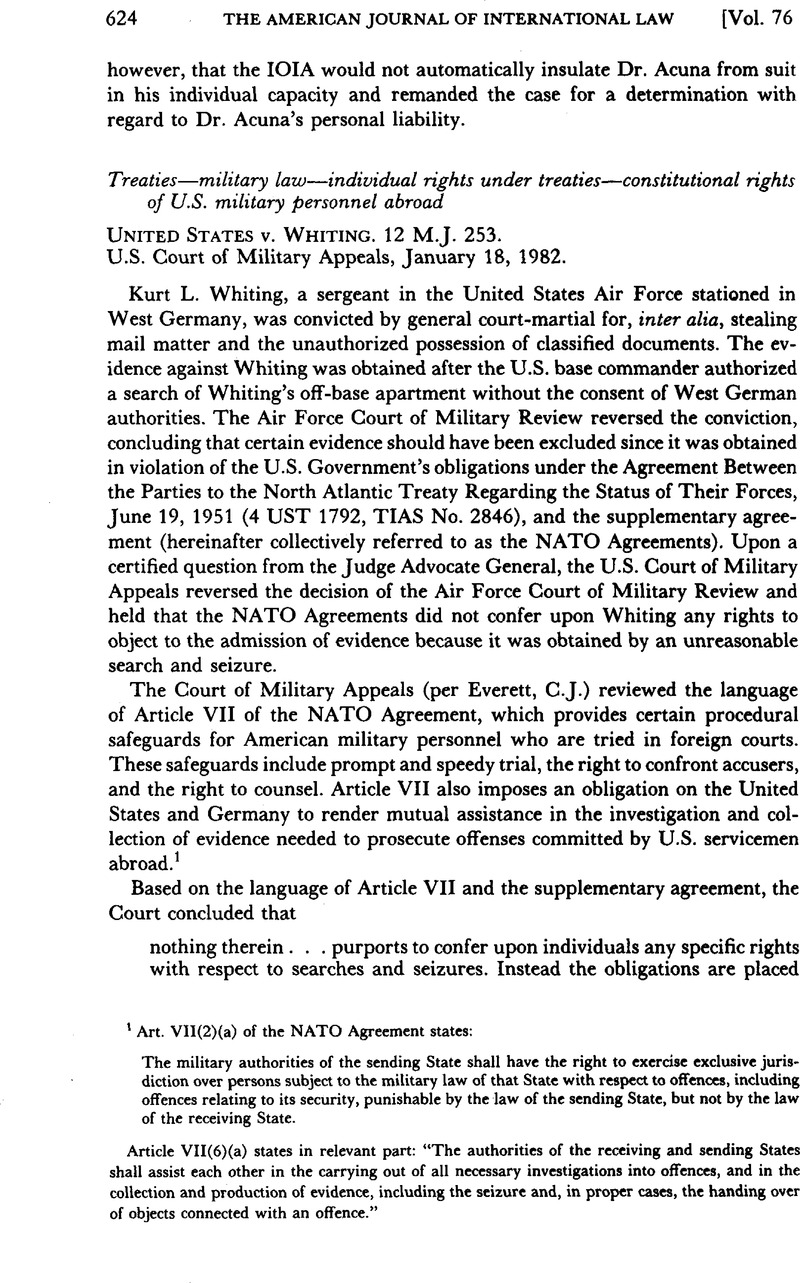No CrossRef data available.
Published online by Cambridge University Press: 27 February 2017

1 Art. VII(2)(a) of the NATO Agreement states:
The military authorities of the sending State shall have the right to exercise exclusive jurisdiction over persons subject to the military law of that State with respect to offences, including offences relating to its security, punishable by the law of the sending State, but not by the law of the receiving State.
Article VII(6)(a) states in relevant part: “The authorities of the receiving and sending States shall assist each other in the carrying out of all necessary investigations into offences, and in the collection and production of evidence, including the seizure and, in proper cases, the handing over of objects connected with an offence.”
2 12 M.J. 253, 255.
3 Id. at 257.
4 Id. at 259.
5 See generally 14 Whiteman, M., Digest of International Law 302–05 (1970)Google Scholar; Henkin, L., Foreign Affairs and the Constitution 158 (1972)Google Scholar.
6 See, e.g., Hopson v. Kreps, 622 F.2d 1375, 1380 (9th Cir. 1980).
7 See, e.g., Pauling v. McElroy, 164 F.Supp. 390 (D.D.C. 1958), aff’d, 278 F.2d 262 (D.C. Cir. 1960).
8 354 U.S. 1, 6 (1957).
9 See, e.g., Stonehill v. United States, 405 F.2d 738 (9th Cir. 1968), cert, denied, 395 U.S. 960 (1969).
10 Cf. Byars v. United States, 273 U.S. 28, 33 (1927).
11 See United States v. Jordan, 1 M.J. 334, 338 (C.M.A. 1976).